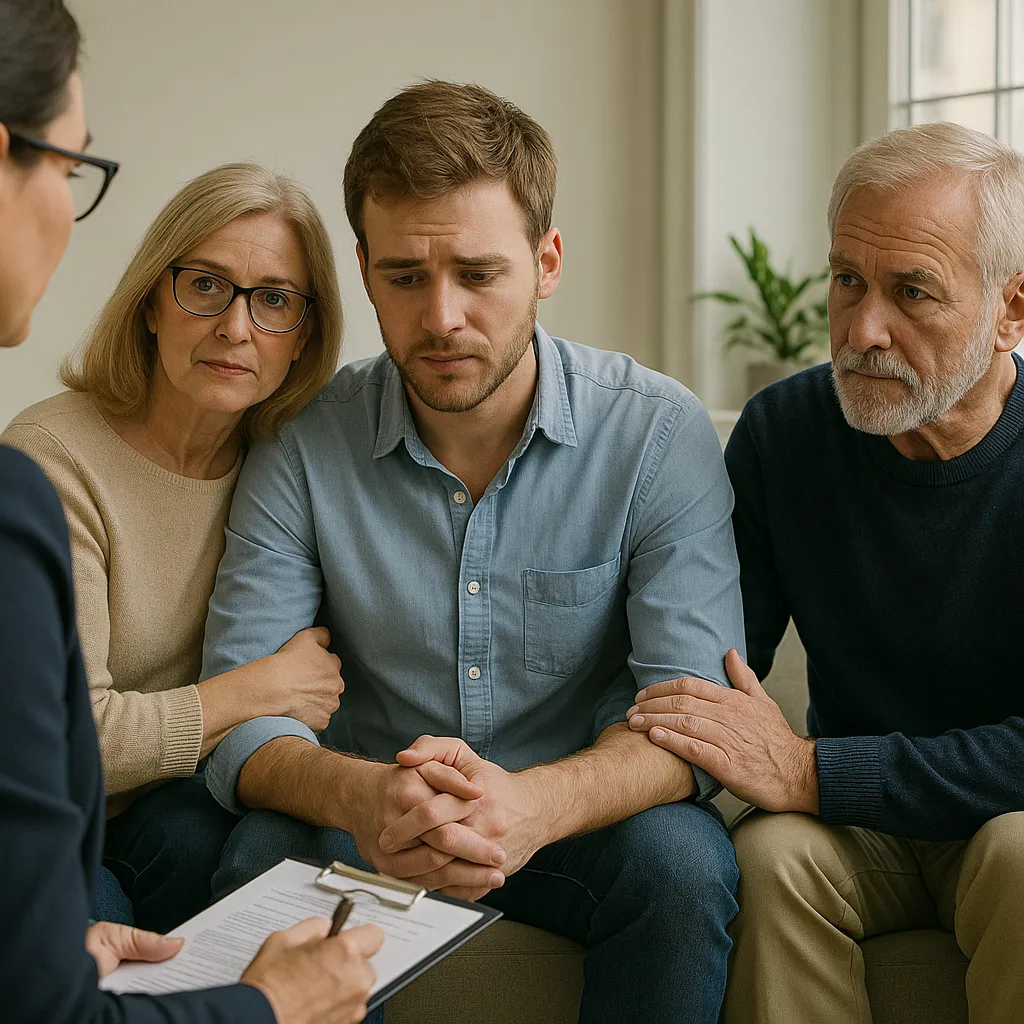
How to Support a Loved One Recovering from Addiction: A Family Guide
How to Support a Loved One Recovering from Addiction: A Family Guide
Addiction recovery isn’t a journey anyone walks alone. Whether your loved one is entering rehab, recently completed treatment, or navigating life in sobriety, your role as a family member or friend is both powerful and delicate. At LA Wellness Haven, we’ve seen firsthand how a strong support system can be the difference between relapse and long-term recovery.
If you’ve found yourself asking, “How can I best help?” — this guide is for you.
Understanding the Recovery Process
The more you understand what your loved one is going through, the better equipped you’ll be to support them. Recovery often unfolds in stages: detox, treatment, aftercare, and reintegration into daily life. Each phase brings its own challenges — from managing cravings and emotional shifts to rebuilding confidence and purpose.
It’s common to feel confused or helpless watching someone you care about struggle. But learning about addiction as a disease, and the healing process that follows, creates a foundation of empathy. Knowledge leads to compassion — and compassion is the heartbeat of support.
Communicating with Care
Words matter, especially in recovery. Your loved one may feel shame, guilt, or fear. Meet them with calm, patient, and nonjudgmental communication. Here’s how:
Listen more than you speak. Sometimes, just being a safe space is the most healing gift.
Avoid blame or “fix it” language. Instead of “Why can’t you just stop?” try “I’m here for you no matter what.”
Validate small victories. Recovery is built on moments. Celebrate the clean days, the counseling sessions, the honest conversations.
Healthy communication builds trust — and trust fuels healing.
Do’s and Don’ts for Supporting a Loved One in Recovery
Let’s get practical. Here’s what helps — and what doesn’t.
Do:
Encourage therapy or aftercare attendance.
Participate in family counseling when available.
Help structure daily routines — meals, exercise, downtime.
Offer to attend sober events together (even a simple walk counts).
Set clear boundaries with love and consistency.
Don’t:
Enable the addiction (e.g., providing money or covering up relapses).
Use stigmatizing labels like “junkie” or “addict.”
Pressure or guilt-trip them into “performing” recovery.
Ignore your own mental or emotional needs.
Recovery is not about control — it’s about connection. Show up with grace, not ultimatums.
Creating a Recovery-Friendly Environment
Sobriety flourishes in safe, supportive spaces. Your home and habits can either help or hinder progress.
Remove temptations. No alcohol, unused prescriptions, or high-risk triggers in shared spaces.
Keep stress low. Recovery is already emotionally taxing. Calm routines and predictability go a long way.
Be part of their new rhythm. Invite them to yoga, meal prep, game night, or a support group. Shared experiences build connection without substances.
Even small shifts — like switching from a bar night to a hike — show you’re in their corner.
Encouraging Aftercare and Long-Term Support
Rehab is just the beginning. Aftercare — whether it’s therapy, 12-step meetings, holistic practices, or a combination — is essential for long-term success.
You can:
Help coordinate rides or schedules.
Attend family workshops or educational sessions.
Normalize the idea that healing is ongoing — not a one-and-done event.
If your loved one is receiving care at LA Wellness Haven, ask about our family support programs and how you can actively be part of the healing.
Take Care of Yourself, Too
Supporting someone in recovery is a beautiful, but sometimes heavy, responsibility. You may feel frustrated, afraid, or even resentful at times — and that’s okay.
Make space for your own well-being:
Join support groups like Al-Anon or SMART Recovery Family & Friends.
Speak to a therapist who understands addiction dynamics.
Practice self-care: sleep well, eat mindfully, move your body, and protect your peace.
You can’t pour from an empty cup. Prioritizing your wellness models healthy behavior — and ensures you stay grounded during their ups and downs.
Recovery Is a Journey — for Both of You
Healing doesn’t follow a straight line. There may be setbacks. But with consistent love, boundaries, and patience, recovery becomes not just possible — but sustainable.
Remind your loved one: “You’re not in this alone.”
And remind yourself: neither are you.
Resources
Here are some organizations and tools that offer support for families and friends:
SAMHSA National Helpline: 1-800-662-HELP (24/7, confidential)
Al-Anon Family Groups: www.al-anon.org
SMART Recovery Family & Friends: www.smartrecovery.org
Partnership to End Addiction: drugfree.org
And if you need guidance or are seeking treatment options, LA Wellness Haven is here to help — for you, your loved one, and your family as a whole.